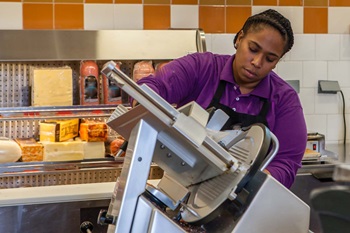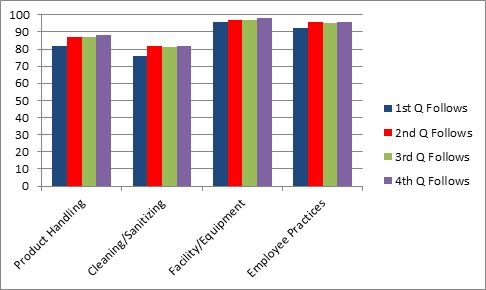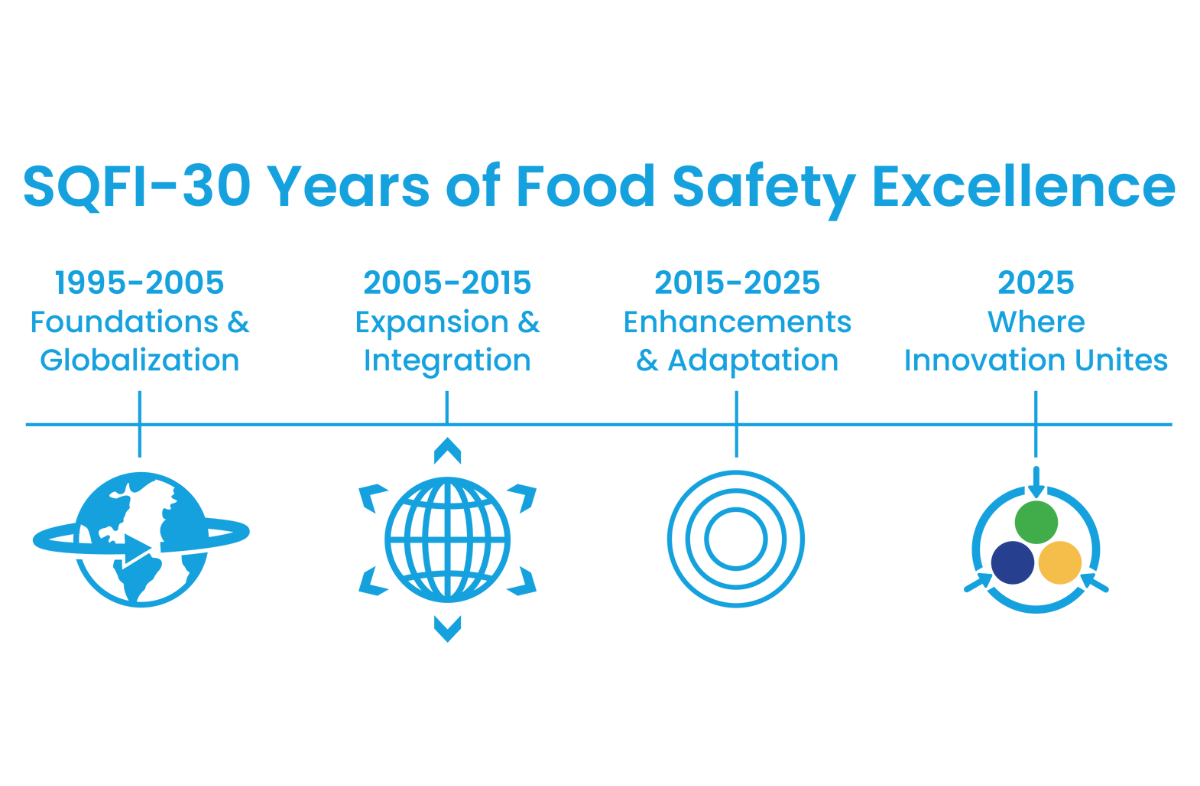By: Hilary Thesmar, PhD, RD, CFS, Chief Food and Product Safety Officer and Vice President, Food Safety Programs

Prevention of Listeria monocytogenes (Lm) in retail delis has been a priority issue of FMI for over a decade and we’ve published several guidance documents, held numerous meetings and presentations on the topic. As a rare, but very serious bacterial pathogen, Lm grows best in moist, cold environments and has an affinity for protein rich foods. The association of Lm with deli foods and the deli environment has been well documented in the food safety literature.
Both FDA and USDA have expressed concern about the public health impact of Lm and have published several risk assessments on Lm over the past few decades. Most notably, the September 2013 Interagency Risk Assessment – Listeria monocytogenes in Retail Delicatessens which prompted several subsequent documents including the “FSIS Best Practice Guidance for Controlling Listeria monocytogenes (Lm) in Retail Delicatessens”. The FSIS guidance document was the basis for a year-long pilot project that began in January 2016 to assess whether retailers were following the recommendations outlined in the June 2015 Best Practice Guidance. The results of the pilot project were published in the January 13, 2017 Constituent Update and are summarized in the table below.

As part of the USDA FSIS Strategic Plan FY2017-2012, FSIS has announced plans to extend the pilot project from 2017 until then end of calendar year 2021 to continue evaluating how retailers are controlling Lm and their adoption of the FSIS Retail Lm Guidance recommendations. The FSIS Guidance notes the following eight recommendations as having the greatest impact to protect public health:
- Eliminate visibly adulterated product present in the retail deli;
- Refrigerate ready-to-eat (RTE) meat or poultry products promptly after use;
- Do not prepare, hold, or store RTE meat or poultry products near or directly adjacent to raw products in the deli case or elsewhere in the deli area;
- Cover, wrap, or otherwise protect all opened RTE meat or poultry products when not in use to prevent cross-contamination;
- Ensure that insanitary conditions (e.g., flies, rodent droppings, mold, or dirty surfaces) are not present where RTE meat and poultry products are prepared, packed, and held;
- Clean and sanitize equipment used to process RTE products at least every 4 hours;
- Eliminate facility conditions in the deli area or storage area that could cause the products to become adulterated (e.g., condensation dripping on exposed product, construction dust, or broken equipment); and
- Require deli employees handling RTE products to wear disposable gloves.
As we learn more from FSIS, FMI will be sharing more information about this pilot project and the agency plans to evaluate the industry. In the meantime, we encourage you to remain vigilant and continue to focus on cleaning, sanitation, temperature control, food storage, food handling, and employee training.
FMI has made the following resources available to you to help simplify the process:
If you would like additional information, have questions or would like assistance, please feel free to contact FMI at foodsafetyteam@fmi.org or (202) 220-0661.


 Industry Topics address your specific area of expertise with resources, reports, events and more.
Industry Topics address your specific area of expertise with resources, reports, events and more.
 Our Research covers consumer behavior and retail operation benchmarks so you can make informed business decisions.
Our Research covers consumer behavior and retail operation benchmarks so you can make informed business decisions.
 Events and Education including online and in-person help you advance your food retail career.
Events and Education including online and in-person help you advance your food retail career.
 Food Safety training, resources and guidance that help you create a company food safety culture.
Food Safety training, resources and guidance that help you create a company food safety culture.
 Government Affairs work — federal and state — on the latest food industry policy, regulatory and legislative issues.
Government Affairs work — federal and state — on the latest food industry policy, regulatory and legislative issues.
 Get Involved. From industry awards to newsletters and committees, these resources help you take advantage of your membership.
Get Involved. From industry awards to newsletters and committees, these resources help you take advantage of your membership.
 Best practices, guidance documents, infographics, signage and more for the food industry on the COVID-19 pandemic.
Best practices, guidance documents, infographics, signage and more for the food industry on the COVID-19 pandemic.
